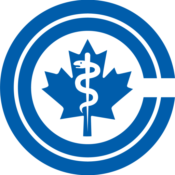
Dr. Mélanie Morris normally spends her days providing care for children and youth, as a pediatric surgeon at HSC Winnipeg. But the past year has been anything but normal and, these days, providing that care for patients and their families requires her to also make sure she is protecting herself.
“Every day I’m surrounded by kids and their parents, and in very close contact with my patients. It’s my responsibility to protect each one of them – and myself – by getting vaccinated. And I think it’s a responsibility for all of us to work together to tackle this.”
In her practice, Morris sees youth as key to tackling and controlling the spread of the virus. In her family, and in many other Indigenous families across Manitoba, Morris also observes this to be true as the younger generation takes an interest and responsibility in protecting elders, including Morris’ own immunocompromised parents.
“My son is too young to be vaccinated, but my nieces and nephews have their first shots already!” said Morris. “I’m so proud of how well they have followed the public health guidelines throughout the pandemic, listening to their teachers and reiterating what they hear. They have been an excellent reminder that this is the right thing to do.”
As someone of Métis heritage, Morris knows that protecting the older population rings particularly true for Indigenous families and communities.
“Elders in our community are sacred knowledge keepers who carry our culture and history orally, through language and stories,” says Morris. “So, we have a great responsibility to keep our grandmothers, our grandfathers, Elders and Knowledge Keepers safe.”
June marks National Indigenous History Month, a time to acknowledge the history, heritage and diversity of First Nations, Inuit and Métis in Canada. The tragic discovery of children’s remains recently near former residential school’s across Canada reminds us of a difficult part of Canada’s history and further signifies the importance of this month.
Morris -the first and only Indigenous pediatric physician in Canada- recognizes the inequities and systemic racism that have historically – and continue to – marginalize the Indigenous Peoples within Manitoba’s health system and the distrust it’s caused. That’s why creating sustainable change has been an important part of her daily work, including developing outreach clinics in northern and remote communities and the creation of an Indigenous community healing space within HSC Children’s.
“Empowering Indigenous youth to take action with a sense of authority and purpose will be an important way forward for us as we, as a country, look for truth and reconciliation,” said Morris.
This is something Morris said many groups – including Ongomiizwin Health Services, Aboriginal Health and Wellness Centre of Winnipeg, Manitoba Keewatinowi Okimakanak, Assembly of Manitoba Chiefs, First Nations Social Secretariat of Manitoba and Southern Chiefs’ Organization, as well as individual physicians, nurses and other health-care workers- have been very vocal about over the past year by encouraging communities to get vaccinated, and inspiring our youth to get involved.
“If we all work together, we can do this. The vaccine works, it’s safe and it’s well tested. That’s why I’ve had my shot. And I hope you get yours too so we can strengthen and protect our communities.”
